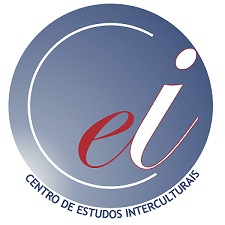6 de Abril 2017 | 15.00 | Sala de Leitura Informal da Biblioteca, ISCAP
ABSTRACT
Over the last fifteen years the Council of Europe has put great emphasis on the significance of ‘interculturality’ in language learning and insisted that users of a second/foreign language must be able to correlate their native culture with that of the new one to become multilingual speakers. In this vein, the CEFR considers the socio-cultural competence of a language as a key notion for language learning and, more particularly, for professional communication. To get this competence, it is essential to acquire a knowledge of the socio-cultural context where the target language is spoken and the ability to adopt the appropriate social strategies used by the target group or community. In other words, as speakers of a language we belong to a particular cultural context deeply rooted in ourselves and very difficult to get rid of when we are exposed to the culture of a new language.
This conference is mainly addressed to both students and teachers of English and Spanish, the main purpose of which is to get them familiarized with the cultural values making up the cultural framework of Spaniards and Britons and reflect on how culture may impact on the linguistic rituals of behaviour, rhetorical conventions and communication strategies frequently used in English and Spanish for professional purposes. As such, the conference will be divided into two main parts: (a) attendants will be provided with a theoretical background on the use of culture and its implication on the teaching and learning of second/foreign languages and (b) a practical session will be devoted to examine, analyse and discuss the way culture is reflected on particular professional genres in English and Spanish.
In the globalized world we are currently living, acquiring a good linguistic and communicative competence in a second/foreign language does not seem to be enough. We ought to be aware of how language functions in particular social contexts and how these may be determined by the cultural values of the target speech community.
Nota biográfica
Dr. Francisco Miguel Ivorra Pérez is currently a lecturer in English Language and Linguistics at the University of Valencia (Spain). He holds a Ph.D. in English Studies, and his thesis dealt with the influence of cultural values on English and Spanish business websites. His main areas of research are discourse analysis, intercultural communication and English and Spanish for academic and professional purposes. He has published articles in international journals like Atlantis, Journal of Intercultural Communication, Clina, Miscelanea Journal of English and American Studies as well as book chapters in different books such as A Multidisciplinary Approach to Service Encounters: Brill or Multiple Voices in Academic and Professional Discourse: Cambridge Scholars Publishing. He also the author of the book entitled La Comunicación intercultural y el discurso de los negocios, edited by the University of Alicante (Spain). Dr. Francisco Miguel Ivorra is also a member of the Interuniversity Institute of Applied Modern Languages (IULMA) at the University of Valencia (Spain) and Head of the research group “SILVA” (Group of Support for Investigation in Language Variation Analysis).

